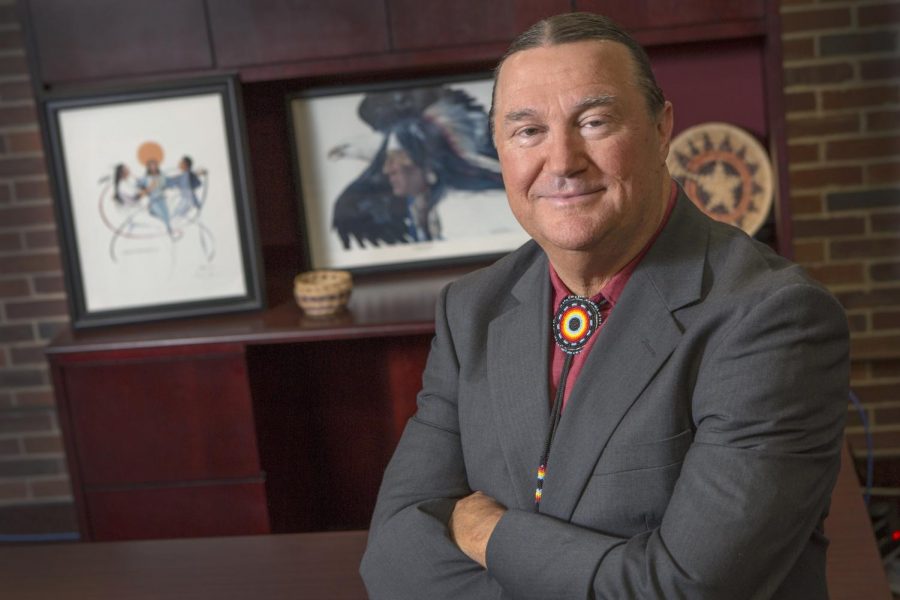School of Nursing receives grant for supporting Native American youth mental health
December 15, 2021
Editor’s Note: This article first appeared as part of the November 16 flipbook.
The School of Nursing received a grant of up to $600,000 for their work supporting the mental well-being of Native American youth.
The 2021 Hillman Innovations in Care Program: Racism and Health, created in 2014, is part of the Rita & Alex Hillman Foundation and highlights innovative methods of care that target healthcare needs of historically marginalized communities including BIPOC individuals, LGBTQ+ individuals and those who are economically disadvantaged.
The award specifically recognizes nursing professor John Lowe, who is one of fewer than 25 Native American PhD nurses in the United States, and how he addresses the historical trauma Native American youth face in their daily lives.
“We were meant to be exterminated,” Lowe said. “That is embedded into our daily experience because we are still living out those events … they didn’t just evaporate or go away, the consequences of all of that is still there.”
Cynthia Greywolf, an early career provost fellow in the School of Nursing, who is also Native American, said the intergenerational transmission of trauma affects today’s Native American population.
“It’s not just word of mouth from family members about things that happened … those types of experiences actually caused changes in the genome,” Greywolf said.
Greywolf said that Native Americans and Indigenous youth likely use more drugs and alcohol than other populations because of the historic trauma.
To address substance abuse within Native American populations, Lowe developed the Talking Circle intervention, which worked on for the past 20 years. Lowe said most programs delivered to Native American youth are negative when it comes to tackling substance abuse or other health issues, which is why he developed the talking circle approach.
“(Our) process ( … it’s very different,” Lowe said. “We take a strengths-based approach … about who we are, and we’re meant to be as Native American people.”
Assistant nursing professor Melessa Kelley, who is also Native American, said this work is timely because the pandemic has exacerbated mental health issues among Americans.
“It’s very important particularly for our Native youth,” Kelley said. “The pandemic has brought out a lot more than probably we have ever realized, particularly with like, mental health and suicide.”
Additionally, Greywolf said the pandemic helped people realize the health disparities for communities of color. She said there needs to be more research done into why these disparities exist.
“How much of that is because of those vulnerabilities that have been caused by epigenetic changes, for example, from past historic trauma experiences?” Greywolf said.



